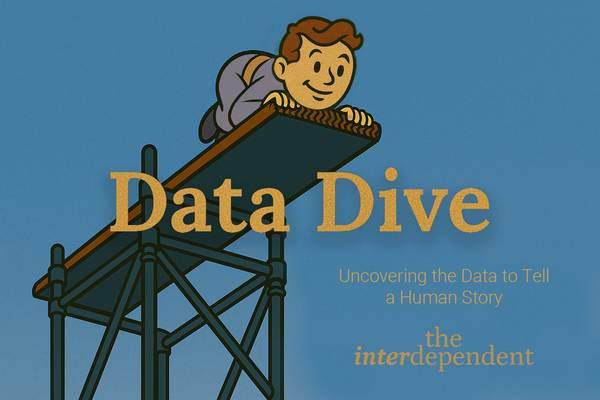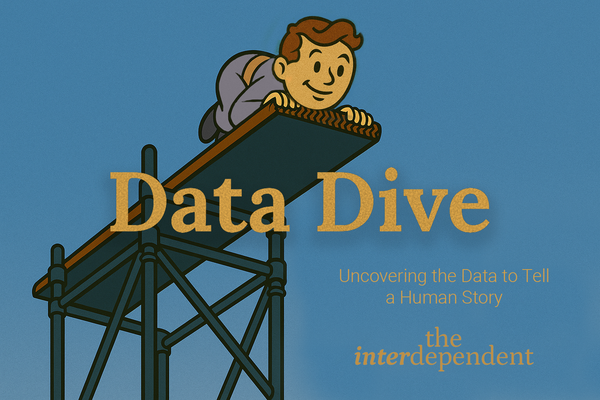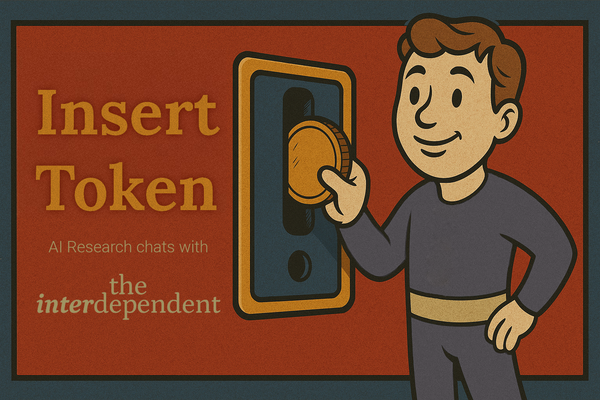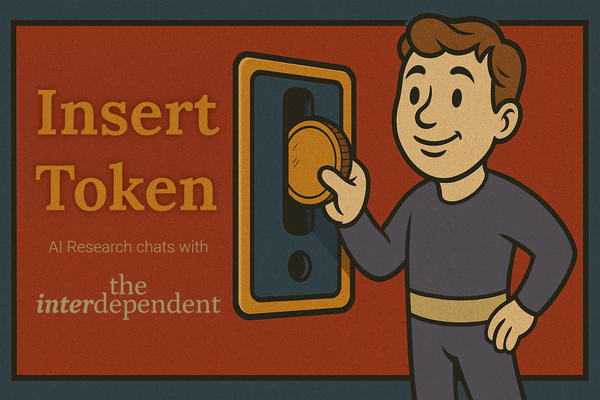Consumer or Producer... Who's to Blame?
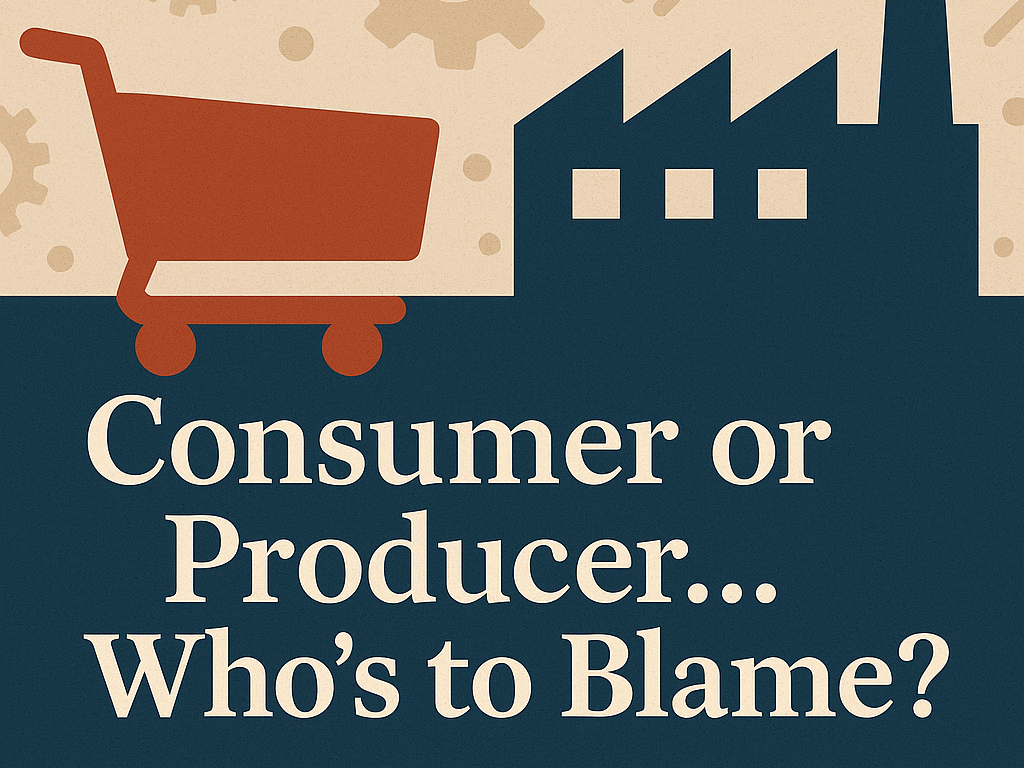
For decades, we've passed the hot potato of who's to blame for the negative affects of our supply and demand capitalist policies. Meanwhile, our environment, our infrastructure, and our economic leverage are taking the brunt of the impact. We act as if it is our duty to be a cog in the economic machine. It's less about blame, and more about organizing and accountability. But we're going to have to create the economy we want for ourselves. Let me explain what I mean.
In a world of mostly free trade and free flow of ideas, especially in a capitalist society, it's up to each party to organize and negotiate. It's just the way it is. The problem is that, in terms of wealth and resource control, our society is already stacked in favor of the powerful — who conveniently happen to be the producer class.
So in that sense, the producers have the upper hand. Large corporations have massive physical and digital infrastructure. They've been building enterprise focused tools and using ever-evolving predictive modeling for decades. Not to mention the fact that federal policy has been built to serve these incentive structures.
However, consumers have power too, especially when they organize. We've seen this before, and we see it now. When it happens, it’s powerful. But why doesn’t it last? And what can we do to harness the potential of the consumer class?
The Power (and Fragmentation) of the Consumer Class
The power of the consumer class lies in sheer numbers — but we’re split into tribes.
This distributed model, though fragmented, can actually be stronger when we align under shared values. Our disagreements and diversity strengthen each node, and our network grows — staying aligned in mission but flexible for individuals.
These values, in this context, can be acted upon in a few practical ways:
- Knowing that every dollar you spend is a vote or endorsement — and it probably matters more than your vote at the ballot box.
- Remembering that, overall, the consumer class still controls the labor (for now).
- Guarding your personal data, and realizing its value.
1. Every Dollar Is a Vote
Our (consumer) spending currently makes up almost 70% of the US GDP. That means our dollars are the most important thing, and what we choose to spend our money on is essentially an endorsement, or vote in favor of a company.

If everyone simply made the effort to buy according to their own values and convictions — and avoided working for companies they can’t be proud of (when reasonably possible) — I believe that would solve many of our problems, or at least make them more visible.
This is what I mean by a distributed network that’s more powerful because of its diversity, and flexible for the individual. We all want the same things; we just disagree on how to get there.
If you believe it’s okay for companies to pollute other countries to help their bottom line because of "reasons", then continue to buy from them. But if you don’t approve, then you must abstain. It just takes a little more effort, but you already have the technology in your hands to research a company before you buy a product or service.
The result of everyone buying based on their convictions would essentially be like everyone continuously boycotting what they don’t support, without having to initiate a boycott.
What would change if we all did that?
2. Remember Who Makes the System Run
Here’s something we often forget: the consumer class and the labor class are mostly the same people.
We’re the ones who build, ship, sell, and service the very products we consume.
That means we already hold immense collective power — but we rarely recognize it. Every company, from the smallest shop to the largest tech conglomerate, relies on the consistent efforts of ordinary people to function. If that effort is withdrawn, withheld, or redirected with intention, things change quickly.
History shows this clearly. When workers and consumers organize, conditions improve — wages rise, safety increases, and fairness grows. But when we stay isolated or distracted, that leverage disappears.
Peaceful organization doesn’t always mean protest; it can mean building new systems that serve us better. It can mean walking away from a job or industry that demands silence in the face of harm. It can even mean supporting peers who speak up — because they’re often speaking for more than just themselves.
If we can start to see ourselves not as replaceable parts, but as the engine that makes the system run, then our choices at work — not just at checkout — start to carry real weight.
Lessons from the Past
- Freedom Forum — “20 Famous Protests Throughout U.S. History” — A curated list of major protest movements across U.S. history, with context on policy and social change.
- Encyclopaedia Britannica — Timeline of the American Civil Rights Movement — A highly credible reference for core moments when public protest influenced national law and society.
3. Guard Your Data — It’s Worth More Than You Think
Data privacy is an area where most people are either apathetic to, or unaware of the consequences. It's hidden in the fine print when you accept a "free service", and distributed to affiliated marketing partners. Who you give your data to is much the same as the idea of voting with your dollar. All of your history and habits are just rows of data waiting to be used for the benefit of some companies' profits, not your benefit.
Every click, search, post, purchase, scroll, pause, creates value — just not for us.
Our data is collected, analyzed, and sold, feeding a system designed to know us better than we know ourselves. Companies no longer just sell products; they sell predictions about our behavior — and they profit from them.
We give this data away freely because it’s easy, and because we’ve been told it’s harmless. But our personal information is a form of capital. It drives targeted advertising, pricing, and even political influence.
Protecting your data doesn’t mean vanishing from the internet. It means treating your digital life with the same awareness as your financial life.
Use privacy settings. Say no to unnecessary data sharing. Question why a company needs your location, your your buying habits and your biometric data. And know when you scroll, that's all data to them.
If we all recognized the true value of our data and acted accordingly, we’d shift an invisible but massive source of power back into the hands of the people who create it — us.
Protect Your Privacy by Disabling your device’s Ad ID.
Source: https://www.cisa.gov/resources-tools/training/limit-your-digital-footprint
The following guides from the four major operating systems will allow you to disable or limit the collection and sharing of information associated with ad IDs and other tracking data.
- Windows OS
- To disable your Ad ID and control app access to your location, see General privacy settings in Windows - Microsoft Support. Pay attention to the section on “Advertising ID.”
- macOS and iOS
- To turn off personalized ads and block location-based ads on your computer or mobile device, see Control personalized ads on the App Store, Apple News, and Stocks - Apple Support.
- To manage tracking permissions and prevent an app from tracking your activity across other apps and websites, see If an app asks to track your activity - Apple Support.
- Android
- To disable your Ad ID, see Advertising ID - Play Console Help (google.com)
Read the full article for more useful context.
https://news.northeastern.edu/2023/05/23/ad-tracking-companies-invade-privacy/
Remember the Team You’re On
Looking at the mean family income by percentile of income, it's easy to see that even the top 10 percentile are running away with the game, and it's getting worse.

For those who don't find yourself in that upper percentile, we need to stick together. We need healthy debate, and we need to actually listen to each other.
If a group of people on your team decide to strike or protest — and you disagree — that’s okay. But before judging, ask why. Most people don’t take those steps lightly. There’s usually real urgency, conviction, and sacrifice behind those actions.
Most of the messages of division we hear from our highest levels of leadership lately are exaggerated, manipulative, and designed to keep us apart. Because when we’re divided, we’re easier to manage.
The wealthy and powerful have never freely given what’s fair back to the working class — they’ve always had to be held accountable.
This isn’t meant to devolve into resentment of the producer class. It’s meant to remind us that the lines we draw between “sides” were handed to us by those who benefit from our separation.
We need to learn to live in harmony with our counterparts, and that requires us to organize into a posture that gives us leverage as team consumer. But to make that happen, we must hold ourselves accountable, recognize our strength in numbers, and understand what unites us beyond all that may divide us.
They profit from our labor, sell it back to us at a premium, and store the difference — in their bank accounts, databases, warehouses and databases.
Final Thought
We can’t buy our way out of inequality, but we can live, spend, and work with awareness.
If we all acted from conviction, with intention and cooperation, we might actually get somewhere, and build something that lasts.
We just have to remember that we have the numbers and the leverage, but we don't stand a chance if we're divided or trust the producer class to save us.


